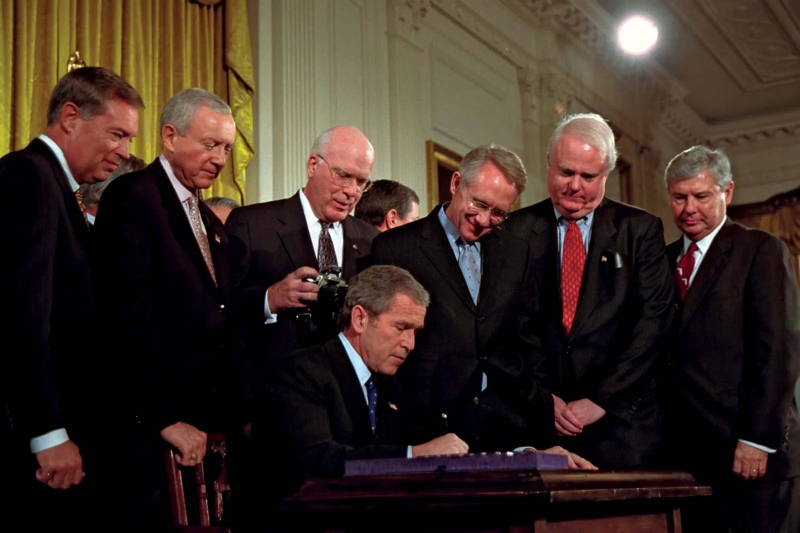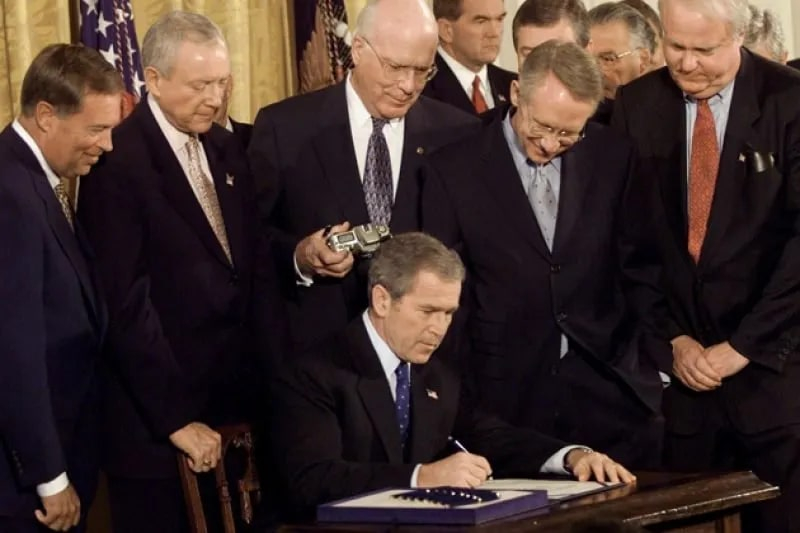Bush Signed The Contentious Patriot Act After 9/11

Top 4 in Top 10 Facts about George W. Bush
Bush signed the Patriot Act after the 9/11 terrorist attacks. This gave law enforcement more surveillance power, allowed them to examine people's homes and places of business without their knowledge or consent, and allowed for the detention of immigrants without charge or trial for an indefinite period of time. Several of the act's provisions were eventually declared unlawful by federal courts.
Following the September 11 attacks, the Bush administration sent Congress a draft of legislation intended to increase the government's ability to monitor, look into, and jail suspected terrorists. On October 11, the final Senate legislation, the Uniting and Strengthening America (USA) Act, was approved (96-1). The Uniting and Strengthening America (USA) Act was passed by the House on October 12 (337-79), largely based on the text of the Senate's USA Act. The USA PATRIOT Act, a compromise measure submitted by the House on October 23 and approved the next day (357–66), was passed. On October 25, the Senate passed the House bill (98-1) without making any changes, and the next day Bush signed it into law.
Beginning in 2001, the USA PATRIOT Act's various components were contested in court. The U.S. Supreme Court ruled in Holder v. Humanitarian Law Project (2010) that the act's definition of "material support," which included expert advice or aid, did not infringe on the rights to free speech and association.
Following the September 11 attacks, the Bush administration sent Congress a draft of legislation intended to increase the government's ability to monitor, look into, and jail suspected terrorists. On October 11, the final Senate legislation, the Uniting and Strengthening America (USA) Act, was approved (96-1). The Uniting and Strengthening America (USA) Act was passed by the House on October 12 (337-79), largely based on the text of the Senate's USA Act. The USA PATRIOT Act, a compromise measure submitted by the House on October 23 and approved the next day (357–66), was passed. On October 25, the Senate passed the House bill (98-1) without making any changes, and the next day Bush signed it into law.
Beginning in 2001, the USA PATRIOT Act's various components were contested in court. The U.S. Supreme Court ruled in Holder v. Humanitarian Law Project (2010) that the act's definition of "material support," which included expert advice or aid, did not infringe on the rights to free speech and association.











